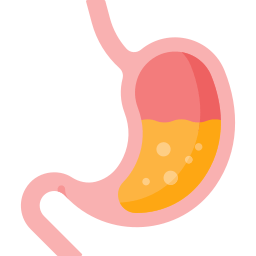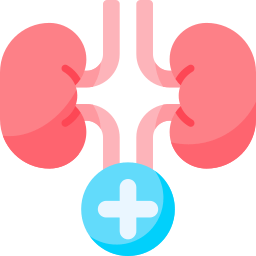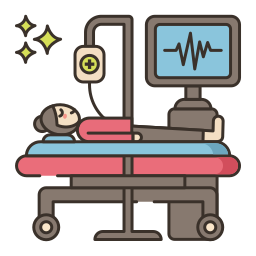Interventional Neuroradiology
Overview
At Charnock Hospital, our Interventional Neuroradiology team utilizes advanced imaging techniques to diagnose and treat complex neurological conditions. Our specialists perform precise, minimally invasive procedures such as brain aneurysm coiling and embolization to ensure effective patient outcomes.
Department Highlights

DSA Testing
Advanced Digital Subtraction Angiography (DSA) for precise vascular imaging and effective interventional planning.

Thrombolysis Protocols
Comprehensive medical and mechanical thrombolysis protocols for effective stroke management.

State-of-the-art Equipment
Penumbra Machine for precise clot removal and advanced vascular interventions, ensuring effective thrombectomy procedures.

Brain Vessel Coiling and Stenting
Targeted brain vessel coiling and stenting for treating aneurysms and vascular abnormalities.
Why We’re the Best Choice?
Charnock Hospital’s Interventional Neuroradiology team provides expert care for acute stroke management and other complex neurological conditions.
Expertise and Precision
Our skilled specialists use advanced imaging techniques for precise diagnoses and effective treatments.
Comprehensive Care
We offer a full range of services focusing on minimally invasive procedures, ensuring optimal patient outcomes and quicker recovery.
State-of-the-Art Technology
Our department is equipped with the latest technology to deliver innovative treatments and superior care, particularly in managing acute strokes and vascular abnormalities in the brain.
Testimonials
FAQ
What is Interventional Neuroradiology?
Interventional Neuroradiology is a subspecialty of radiology that uses advanced imaging techniques to diagnose and treat neurological conditions through minimally invasive procedures.
How do I prepare for an interventional neuroradiology procedure?
The preparation will vary based on the interventional neuroradiology procedure. Specific instructions will be provided by your healthcare provider priorly.
What is the recovery process after an interventional neuroradiology procedure?
The recovery process depends on the procedure performed and the individual’s health status. Generally, patients may experience minimal downtime and can return to normal activities relatively quickly, with follow-up care provided as needed.
What procedures are commonly performed?
Common procedures that are performed in interventional neuroradiology include brain aneurysm coiling, embolization, thrombectomy for stroke, and stenting of brain vessels.
What are the benefits of minimally invasive procedures?
The benefits of minimally invasive procedures include less pain, shorter recovery times, and reduced risk of complications compared to traditional surgical interventions.
Are there any risks associated with medical procedures?
Any medical procedure may involve risks such as bleeding, infection, or adverse reactions. Your healthcare provider will discuss potential risks and benefits specific to your condition.










